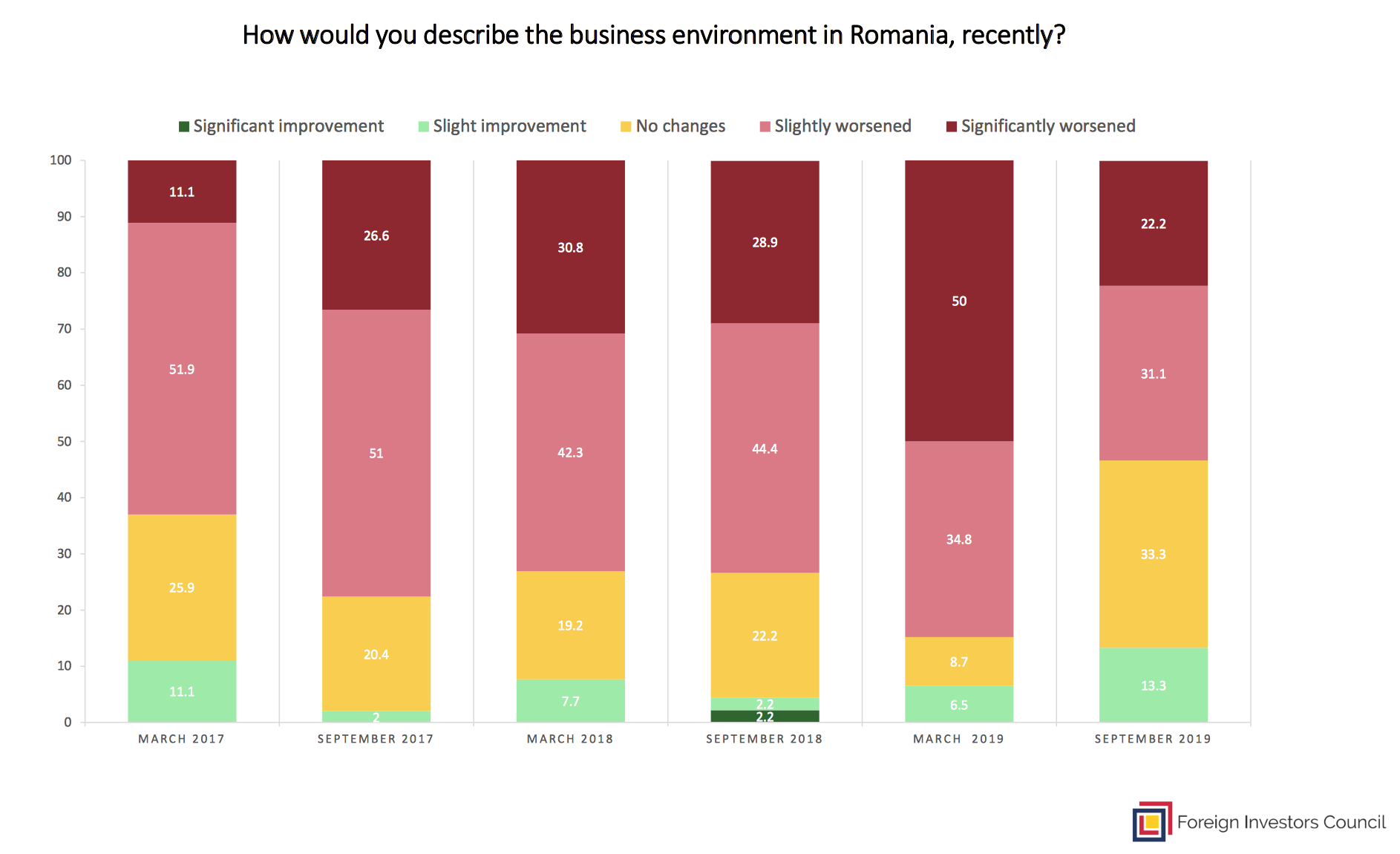Trust in the legislative environment remains low shows the FIC Business Sentiment Index

The latest results of the FIC Business Sentiment Index show that trust in the legislative environment remains low following the debacle of Emergency Ordinance No. 114/2018 but it has not further deteriorated. Romania continues to score poorly on infrastructure and regulatory burden. Investors have no option but to adapt to the “new normal”, that is a situation of constant lack of predictability where anything might happen at any time.
Studies have shown that this lack of predictability have a significant impact on investments, albeit one difficult to quantify. The most worrying indicator right now and the one that continues its steep decline with every edition of the sentiment index for the past three years now is the availability of adequate workforce. A whooping two-thirds of respondents say they are unable to find adequate workforce.
This is for the first time when more than half of the respondents of the FIC sentiment index reported facing this problem. Looking at the results and trends of the sentiment index, the authorities and political parties need to work in a couple of important directions in the following period. First and foremost, they must strive to restore trust in the Romanian legislative environment.
Romania is a stable member of the European community which means it has more space to be unpredictable but this cannot go on indefinitely without harming investments and undermining the mid and long-term potential of the economy.
Secondly, the situation in the labour markets has to be addressed with an eye for the future. Businesses will adapt to a tighter labour market or one where there is an increasing lack of certain skills because they have no alternative. However, the authorities need to pay attention that the general wage level does not outpace the general productivity level of the economy as this will harm the competitiveness of the economy in the long run. The focus of policy should not be, of course, on keeping the wage levels low but on improving the overall productivity of the Romanian economy. This can be done by investments in education and infrastructure but also by upgrading the kind of public services that will increase the quality of life and stop the outflow of people to other countries.






